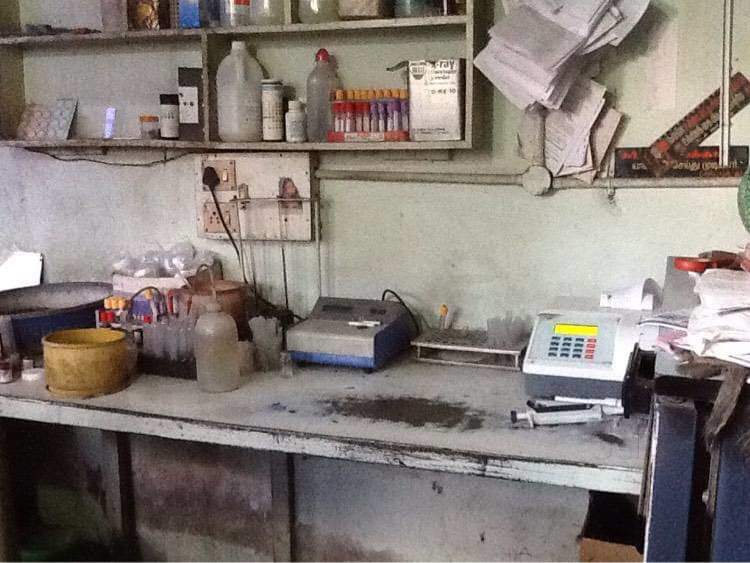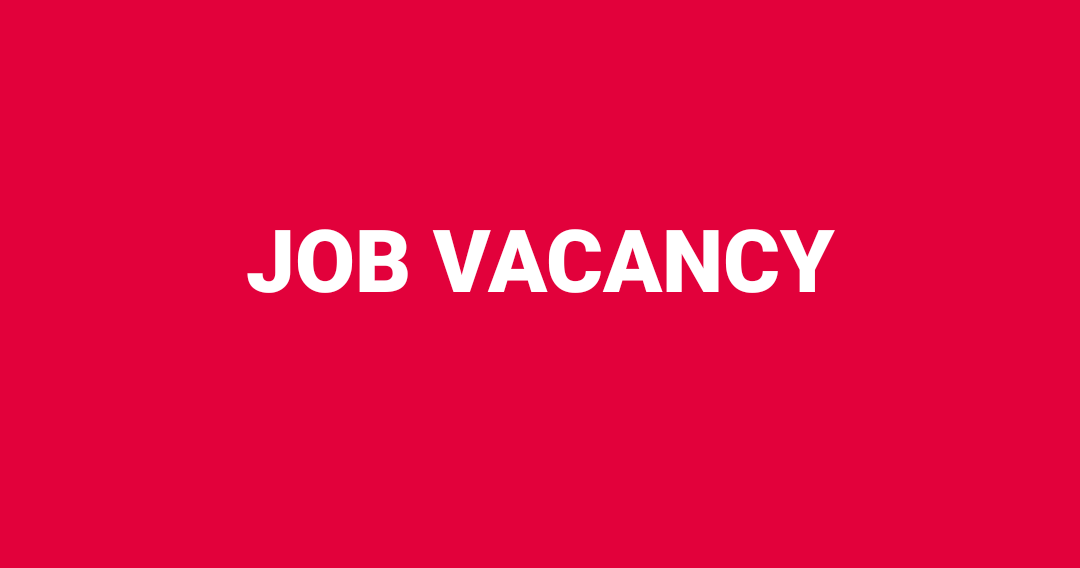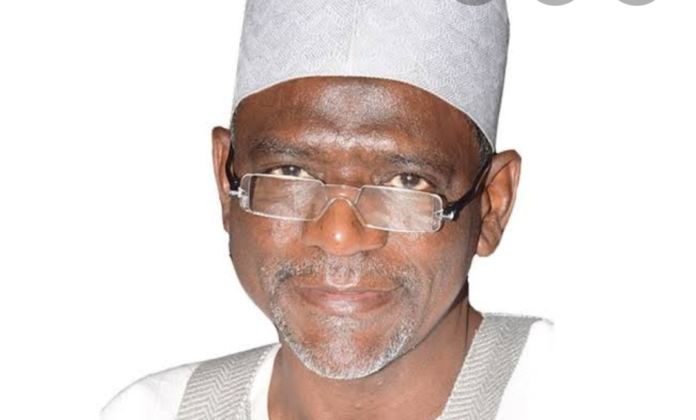Nigeria’s Minister of Education, Adamu Adamu.
By Kufre Okon
Biotech companies across the world are searching for vaccines against the Coronavirus and so are universities. Researchers at Oxford University have finished trial of a vaccine on mice and will soon begin human trial in London. Generally, British universities have been front line in the global search for a vaccine.
Imperial College will this week begin human trial and are offering £625 to volunteers between age 18-55 who are willing to partake in the trial. Other universities around the country are vigorously searching. From Bristol University to Southampton and the second generation schools, academics and scientists in the nation’s universities are genetically modifying a common cold virus to make the Covid-19 jab.
The point is, governments across the world are turning to research labs in their universities and medical institutions for answers to the pandemic. As they give daily briefings and assure the people of solution, their confidence stem from the guarantee they get from their academics and scientists.
The Coalition for Epidemic Preparedness Innovations (CEPI) and the Australian government are looking to the University of Queensland for the ultimate answers this week. The Chinese government is breathing down the necks of researchers at Hong Kong University for a vaccine.
 Photo of a typical science laboratory in public schools in Nigeria.
Photo of a typical science laboratory in public schools in Nigeria.
In the United States, the search is massive, far reaching, and aggressive. Trust America. Universities of Pittsburg, Texas at Austin, Washington and the Baylor College of Medicine are among the many working round the clock to find a solution. Some have already begun human trials since last week.
Germany has raised the bar not just in medicine but in managing epidemics. Thanks to their public health experts and a listening government. Soon, the world will be relying on their vaccines to battle the virus. The University of Veterinary Medicine Hannover Foundation, the BG-Unfallklinik Murnau, the LMU Munich, the Robert Koch Institute and the German Center for Infection Research have found something that should be the turning point in this epic war.
If these are big names, let’s go to smaller nations.
In Taiwan’s Academia Sinica, scientists are reported to have completed a gene synthesis and entered the stage of antigen production within 10 days, a process that usually takes six weeks. With this, the school has been testing for antibodies since the end of March. This huge effort is expected to lead to a Coronavirus vaccine and a drug.
As Africa characteristically waits on the rest of the world to solve its problem, it appears some countries on the continent are this time taking responsibility. The responsible governments among them have learnt a big lessons from HIV.
The South African government is hoping that preliminary work started by researchers at the University of Cape Town will lead the country to a cure for the disease. The country’s Higher Education Minister said recently that the university is working on a potential vaccine with the Council for Scientific and Industrial Research as well as the Biological and Vaccines Institute of Southern Africa. They are wasting no time at all in engaging their researchers.
Egyptians are hoping on outcomes from Cairo University labs. The country currently has what is rumoured to be a cure and are said to be quietly testing this on patients in Cairo. The rumour is that what they have found may have slowed the number of deaths at 250 from just over 3000 infections. Cairo University claimed on April 6 to have developed a treatment protocol for the Coronavirus that is now awaiting approval from the Ministry of Health and Population, one report by Al-Monitor says.
In Ghana, the government is counting on scientists from the University of Ghana to consolidate the university’s remarkable achievement of the past week. According to a CNBC report, the school has successfully sequenced genomes of the COVID-19 virus and have obtained important information about the genetic composition of viral strains in 15 cases in Ghana. Their discovery may be elementary in the virology community but it is important for a continent that is struggling with sequential data which is important for vaccine development. And very plausibly, scientists from the country’s universities are playing important roles in the African Vaccine Manufacturing Initiative.
 Seeking a top management job at Microfinance institution? CLICK HERE
Seeking a top management job at Microfinance institution? CLICK HERE
So, where are universities from Africa’s largest economy? How come Nigeria’s ivory towers are not among those bringing new knowledge to the COVID-19 table? Why are our academics and scientists hiding away in their homes like the rest of us when their colleagues elsewhere are in the battlefield that is the university laboratories?
Well, the first and obvious answer would be that you cannot reap from where you did not sow. Or better put, you’re reaping what you sowed because even in not sowing, you actually sowed, and you will surely reap fruitlessness and damnation thereof.
Nothing better illustrates our collective tragedy than the fact that as university labs elsewhere stay open and busy round the clock, our supposed warehouse of knowledge have been locked down like common grocery shops. While others are chasing down the virus hoping to help government save the lives of their citizens, our professors and scientists are hiding in their homes, washing their hands 100 times an hour like the rest of us, and hoping to stay safe from the very virus they should be battling on our behalf. We cannot, of course, fault them. Smart as these lot are, we have not empowered them to stand up to the task for which they obtained knowledge. They have no labs and no facilities to work with. Our university labs are in tatters. Worse is the poor compensation regime. No insurance will cover their families should they die at the battlefield. Why would anybody risk anything for an irresponsible nation?
Let me illustrate how badly bewitched we are.
READ ALSO : Scientists in Australia say Ivermectin, a 1979 ‘essential drug’ can kill COVID-19 in 48hrs
As COVID-19 started to spread, the World Bank realised we were facing the problem of a low representation of genome sequences. Genomic sequencing would give important insight into the development of a vaccine for us. So they supported the establishment of sequencing labs across the continent. Nigeria’s centre was where the continent’s first sequence of the SARS-CoV-2 virus was reportedly carried out. But with our growing number of cases, we have since stopped the sequencing and have converted the facility to mere test labs for the virus leaving us to become much more vulnerable.
Even with this, Nigeria has only successfully tested less than 10 thousand people so far in a highly communal country of more than 180 million people. Ghana, South Africa, and Senegal have tested several thousands. The difference between our mediocre test number and the high testing number in South Africa and others is their superior university lab capacity. Nothing more. Our level unpreparedness for this epidemic was a crying shame. We have never been prepared for anything, just as we don’t fund anything that is critical to the survival of our people.
 Advertisement
Advertisement
A 2017 check indicates our spending on health as a portion of our gross domestic product was far less than that of Ethiopia, Angola and South Sudan. The other day, a Nigeria’s top official said he didn’t know our health sector was in such disgustingly poor state. I didn’t expect him to know. And not many his kind know the state of our squalid hospitals because they and their families don’t get treated in Nigeria. Public health doesn’t matter to people who don’t consider themselves members of the Nigerian public. They continued to ignore reports calling for the strengthening of our laboratory capacity, especially specimen shipping, transportation and referral.
Let me add that we have had multiple opportunities in the past to fund our labs preparatory to an outbreak like this, but we doubled down on our path to self-destruct.
The outbreak of Monkey Pox in 2017 for example confirmed our vulnerability; it exposed our inability to test and respond swiftly to infectious diseases. For several weeks following the outbreak, the country was unsure of what it was dealing with until the illness took hold. In the same period, we had a major spread of meningitis, the return of polio and yellow fever. The situation exposed the weakness of our laboratories and our poorly funded medical research institutions.
So we are paying the price for our carelessness, for the poor priority we set, and above all, for our leaders’ disloyalty to the country they lead. And until we turn attention to the things which are more important to us such as funding universities and research institutions, we will always be the joke and the arsewipes of other countries.
Okon is a journalist from Akwa Ibom state, currently based in the UK.
















